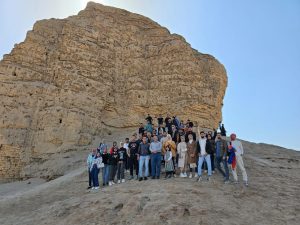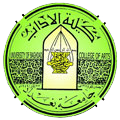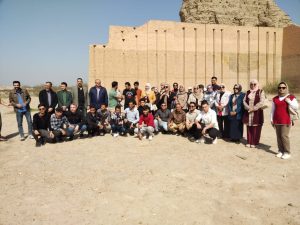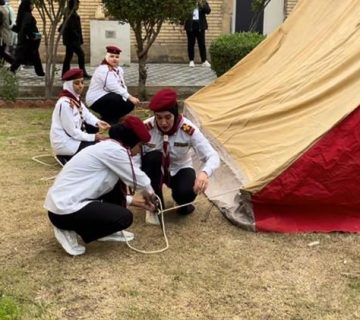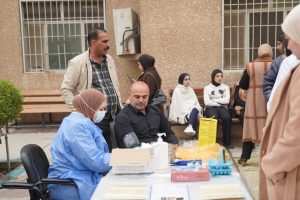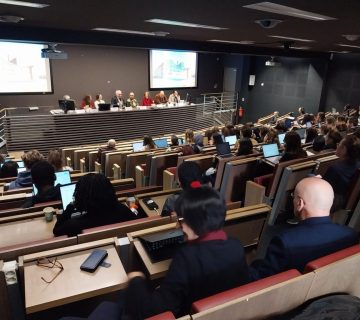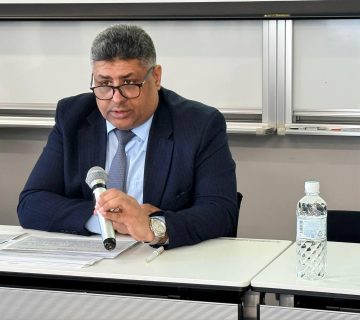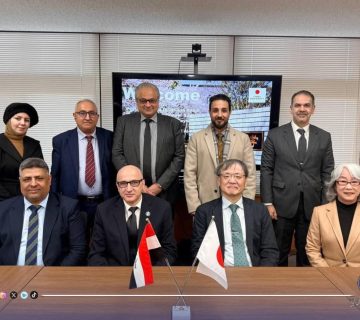A scientific field visit to the archaeological city of Aqar-Qūf (Dur-Kurigalzu) was organised by professors and students from the Department of Archaeology at the College of Arts, University of Baghdad, under the sponsorship of the Dean of the College of Arts, Prof. Dr. Ali Abdul-Amir Sajet
The objective of the excursion was to examine the architectural heritage of this city, situated 30 km west of Baghdad. It was established in the mid-2nd millennium BC by King Kurigalzu I, one of the rulers of the Kassite city during the Babylonian Intermediate Period. The delegation was also apprised of other historical monuments in the city of Aqar-Qūf, including the Ziggurat with its solid construction and its square-built Mastaba. The professors from the Department of Archaeology elucidated the function of the Mastaba, which served as a venue for diverse religious events and rituals
The delegation then proceeded to the area of the terrestrial temples, including the Temple of Enlil, the Temple of Ninlil, and the Temple of Nannurta. It was observed that maintenance operations have reached an advanced stage for this archaeological area, including the Ziggurat, temples, and the Mastaba
The scientific field visit to Aqar-Qūf afforded students and professors a valuable opportunity to gain deeper insights into the city’s rich heritage. It served to underscore the vital importance of preserving its ancient monuments and cultural legacy
